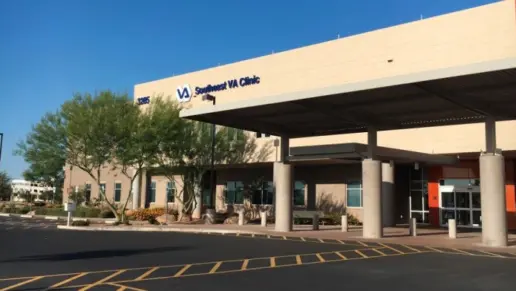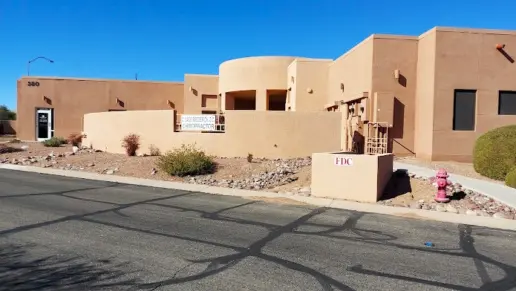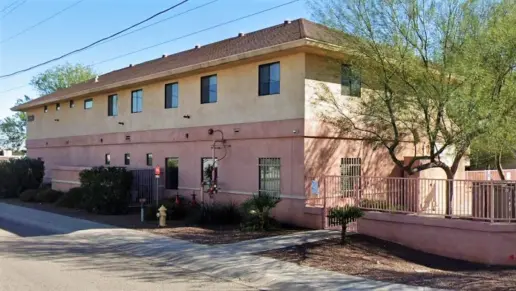Incredible people who help great men find and become their real selves! Thanks to the time and hard work that these people dedicate to their clients, they are able to achieve miracles.
About John Volken Academy
John Volken Academy is a drug and alcohol rehab facility with several locations. Their facility in Gilbert, Arizona, is an inpatient program for men. They treat adult men for substance use disorder and alcohol use disorder. They are a nonprofit program that is offered at no cost.
Clients of the program are referred to as students. The program is two years long. You’ll receive a bed and three meals a day at the facility. This is a gender specific program for men, and they also have a fitness center for clients to use. You do not have to bring anything when you stay here, as they’ll provide you with clothing and toiletries.
They use a unique therapeutic community approach to treatment. There are four basic principles of the program they offer: community, environment, education, and time. They believe that the community of residents can guide one another through the process of recovery and that they need a structured environment to live in.
They educate everyone who lives there about the effects of drugs on their body. They also believe that change happens over a long period of time.
They have a structured daily routine which includes group therapy sessions. They have occasional family support groups so your loved ones can learn how best to help you with your addiction.
All students are assigned jobs around the facility. In addition to a job, you’ll be assigned chores to do around the house. Working is considered to be a form of therapy. They believe that they can best modify the behavior of a person with addiction issues with a system of rewards for good behavior and consequences for bad behavior.
They believe in gradual reintegration. As you go through the program, you will be given more responsibilities and freedoms. The overall point of the program is to make people take more personal responsibility for their actions.
Latest Reviews
Rehab Score
Gallery
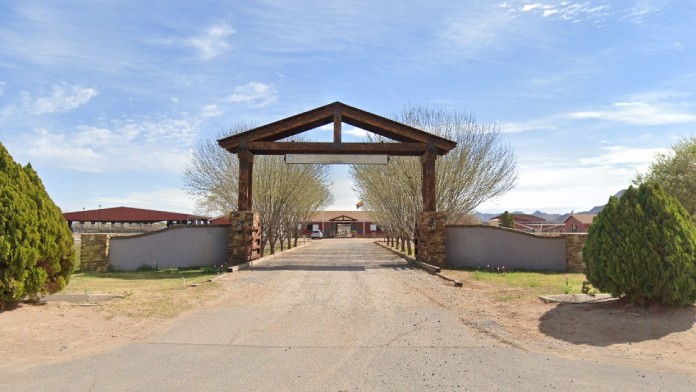
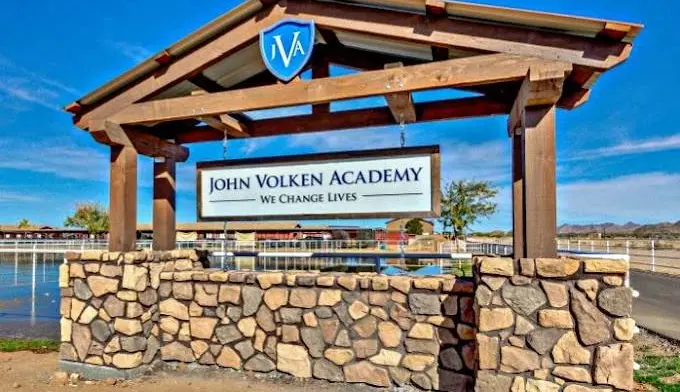
Location
Other Forms of Payment
Medicare is a federal program that provides health insurance for those 65 and older. It also serves people under 65 with chronic and disabling health challenges. To use Medicare for addiction treatment you need to find a program that accepts Medicare and is in network with your plan. Out of pocket costs and preauthorization requirements vary, so always check with your provider.
Medicaid is a state based program that helps lower-income individuals and families pay for healthcare. Medicaid covers addiction treatment so those enrolled can use their coverage to pay for rehab. When a program accepts Medicaid the client often pays very little or nothing out of their own pocket.
Addiction Treatments
Levels of Care
Treatments
The goal of treatment for alcoholism is abstinence. Those with poor social support, poor motivation, or psychiatric disorders tend to relapse within a few years of treatment. For these people, success is measured by longer periods of abstinence, reduced use of alcohol, better health, and improved social functioning. Recovery and Maintenance are usually based on 12 step programs and AA meetings.
Drug rehab in Arizona is the process of treating individuals who are dependent on a particular addictive drug. Because addiction is complex, this treatment typically includes a variety of interventions that address the many physical and emotional issues involved.
Opioid rehabs specialize in supporting those recovering from opioid addiction. They treat those suffering from addiction to illegal opioids like heroin, as well as prescription drugs like oxycodone. These centers typically combine both physical as well as mental and emotional support to help stop addiction. Physical support often includes medical detox and subsequent medical support (including medication), and mental support includes in-depth therapy to address the underlying causes of addiction.
Substance rehabs focus on helping individuals recover from substance abuse, including alcohol and drug addiction (both illegal and prescription drugs). They often include the opportunity to engage in both individual as well as group therapy.
Programs


Clinical Services
Also known as CBT, cognitive behavioral therapy in Arizona is one of the most common types of psychotherapy. It offers a structured method of counseling that effectively treats substance use disorder and dual diagnosis disorders.
Equine therapy, aka equine-assisted therapy (EAT), is a form of experiential therapy that involves interactions and activities with horses. It does not necessarily involve riding horses, but all activities related to horses, such as feeding, grooming, haltering and leading them. A mental health professional frequently oversees the activities (often in conjunction with a horse professional), and helps patients process their thoughts, feelings, and behavior patterns during and/or after the interaction.
Group therapy is any therapeutic work that happens in a group (not one-on-one). There are a number of different group therapy modalities, including support groups, experiential therapy, psycho-education, and more. Group therapy involves treatment as well as processing interaction between group members.
In individual therapy, a patient meets one-on-one with a trained psychologist or counselor. Therapy is a pivotal part of effective substance abuse treatment, as it often covers root causes of addiction, including challenges faced by the patient in their social, family, and work/school life.
Motivational Interviewing (MI) is a clinical approach to helping people with substance abuse issues and other conditions shift behavior in positive ways. It is more goal-oriented than traditional psychotherapy, as MI counselors directly attempt to get clients to consider making behavioral change (rather than wait for them to come to conclusions themselves). Its primary purpose is to resolve ambivalence and help clients become able to make healthy choices freely.
Trauma therapy focuses on helping you understand and manage emotional and physical responses to past trauma. Using therapeutic interventions, you learn to reframe the experience. This helps reduce your anxiety and gives you greater control over your life.
Residents of Arizona who are experiencing relationship problems may benefit from couples therapy. This form of psychotherapy helps couples express their feelings, resolve conflicts, and increase intimacy and affection.
Family therapy involves sessions where members of the family discuss how addiction has affected them individually and collectively. Therapists can guide families in developing coping strategies that help support their loved one's recovery while also focusing on their own emotional health.
Being able to obtain a job, keep a job, and excel in a job, is the most fundamental aspect for maintaining sobriety for their students. As such, vocational development is a major component of the John Volken Academy. Their social enterprises called Life-Skills Training Centers (LTCs) are an integral part of their treatment Program and have been created to prepare students to become valuable employees. At the LTCs students receive extensive job and career training in real-life settings in a variety of enterprises.
Nutrition therapy helps reduce the discomfort of detox and reduces cravings during drug rehab in Arizona. It helps you navigate nutrition, teaching you how to plan and prepare meals that meet your nutritional needs.
Many holistic centers incorporate recreational therapy into addiction treatment to offer you a chance to rediscover joy in movement and motion and build social connections. Activities can include dance, group games, and yoga, which all help improve mental health, reduce stress, and develop positive lifestyle habits. These holistic approaches help sustain long term recovery.
Creativity is inherently healing, and can help those in recovery express thoughts or feelings they might not otherwise be able to. Creative arts therapy can include music, poetry/writing, painting, sculpting, dance, theater, sandplay, and more. Unlike traditional art, the final product matters far less than the experience of creation and expression itself.
Amenities
-
Private Transportation
-
Gym
-
Wifi
-
Hiking
-
Gardens
-
Walking Trails
Contact Information
26601 South Val Vista Drive
Gilbert, AZ 85298
